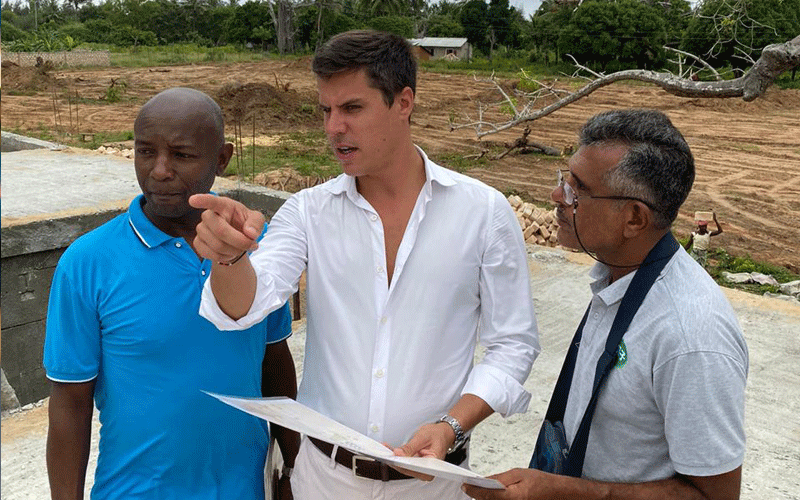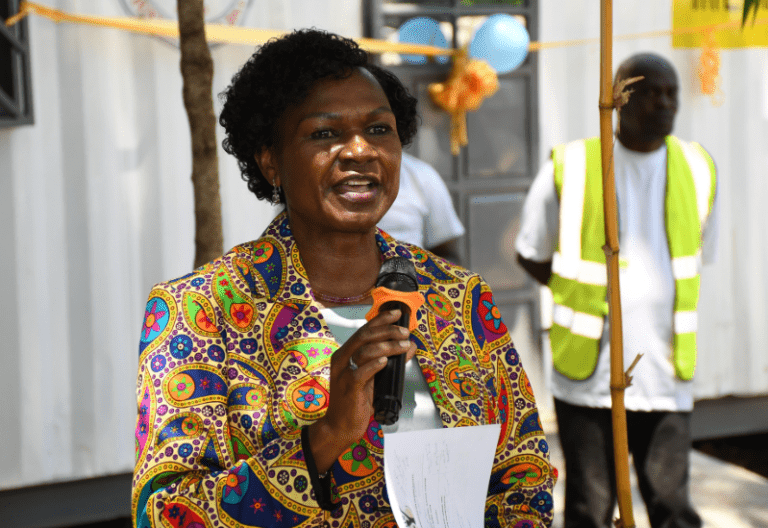Kenya’s ‘I am staying’ bug bites another European professional

Harriet James @harriet86jim
What’s your journey into the real estate industry been like?
Being a Swiss architect and developer, I have always focused on the housing market, mainly in Switzerland.
I believe housing is the greatest and most difficult architectural typology to be developed and researched on.
My girlfriend Laura and I were fascinated by Kenya when we came here for the first time last year. We realised how much we take for granted our homes back in Europe.
It triggered in me a sense of responsibility, and the idea of coming here and to build affordable homes started to play in my head.
As architects, I believe first we have a responsability to deliver better quality of living in our houses.
In ancient Roman times, the architect was also a healer; he needed to teach people how to live under all aspects of living a healthy life style, starting from their homes.
This conscience is what drove me to this sector; to be able to provide a healthy, secure and durable house for many people.
What inspiration lies behind Jamiitown ?
The affordable housing concept is something very dear to the developer of the project, both from an architectural research point of view and from a social responsibility aspect. Everyone deserves a home.
President Uhuru Kenyatta’s Big Four agenda include affordable housing. His monetary policy facilitates funding and grants easier access to credit and mortgage loans for the people willing to buy their homes, making Kenya a very conducive environment to develop such projects.
Our aim is to build affordable houses with the architectural quality and construction standards of high-end homes.
The project is situated 5km from Kilifi town, along the Mombasa – Malindi highway. It comprises 69 houses divided into two-bedroom bungalows at Sh2.8 million and three- bedroom maisonettes at Sh3.8 million.
Jamiitown is a gated comunity that encloses the qualities of a real city. Playgrounds, green spaces, gardens, streets and a square are some of the elements of the project.
There will be a general shop for basic necessities. Two large centenarian baobabs are the only protagonists inside Jamiitown, characterising two of the parks in the estate.
Most people in the real estate market are opting for Kilifi due to affordability of land. Was that the case for you?
The price of land in Kilifi is increasing fast and if you are looking for a good location, you will find it does not come cheap.
There are several real estate developments coming up in Kilifi because houses are in demand.
Furthermore, Kilifi has quite a great number of people coming on holidays from Nairobi to enjoy the white beaches and the windy shores and this also takes also an important market share.
For a person willing to invest in a home at the Coast, there is a positive rental income market thanks to the several institutions which are based here, such as Pwani University and Kemri Institute, among others.
What unique challenges are you facing as a real estate company in Kilifi?
The challenges here are the same ones anywhere else. The important thing is always to target your product at the right audience and market it well so it can be seen by that audience.
This is our first project in Kenya, so we do not have a benchmark to compare it with, but we were positively impressed by the level of efficiency and speed with which we could start the project, thanks to the efforts of the local administration.
What is the market response to the property?
We are getting quite a number of enquiries. We are eager to sit down with potential customers to explain the architecture behind the village, show them the floor plans, the streets, the lighting and how the town life will be like.
The houses are solid concrete built, contemporary Swiss design-oriented, finished by crafted workers using high quality local materials.
Each home is conceived using a system of Moroccan design brise-soleil that guarantees the use of the natural winds that flow from north to south, allowing the houses to be ventilated naturally while maintaining their privacy. These elements become also a decorative theme for the whole estate.











